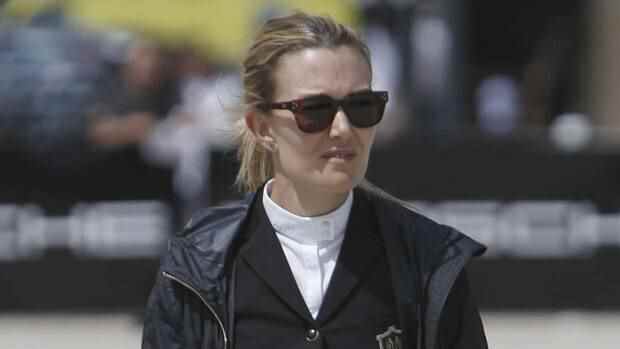Madrid When Marta Ortega moved up to the top of the board of directors of Zara’s parent company Inditex in April, it looked as if the timing had been badly chosen: Inditex had ceased operations in Ukraine on February 24, followed by the same step in March 5 Russia.
This did not bode well for the group, as Russia was the group’s second largest market in terms of stores after Spain and accounted for 8.5 percent of operating profit (EBIT). Ortega seemed to be in for a turbulent start.
But things turned out differently: On Wednesday, the group presented quarterly figures that wiped away all worries of a rapid slowdown. In the first quarter, which runs from February to April at Inditex, the world’s largest fashion retailer’s net profit shot up by 80 percent to 760 million euros. Sales increased by 36 percent to 6.7 billion euros – and that despite the fact that the group had made provisions of 216 million euros for costs in connection with Ukraine and Russia.
Marta Ortega does not have an executive function as head of the board of directors, as was the case with her predecessor Pablo Isla and is still common in many Spanish corporations. Her position corresponds more to that of a German supervisory board chair who controls the business but leaves day-to-day business to the CEO.
Top jobs of the day
Find the best jobs now and
be notified by email.
The record numbers give Ortega some peace of mind
Nevertheless, all eyes were on the 38-year-old daughter of the founder when the figures were presented, as the Spanish textile giant has completed the final generation change with her appointment to the top. Her father Amancio Ortega still holds 59 percent of the shares. He resigned from his position as chairman of the board in 2011.
Although his daughter has worked in various positions in the group for years, she has never been responsible for profit and loss in an exposed area of the company. When she rose to the top, observers found it difficult to assess her suitability for the post.
>>Read here: Turkish fashion app Trendyol challenges Zalando and About You
The entry with record numbers in extremely turbulent times should now bring some calm. The share rose by more than five percent in the morning, leading the Spanish leading index Ibex. When the company announced Ortega’s move to the top last November, the share promptly fell by six percent.
But that was also due to the fact that a new CEO, Óscar García Maceiras, who had only joined Inditex as a chief consultant months earlier, was named with her. A completely new duo at the top had unsettled investors.
The high inflation has not dampened the buying mood
The group, which, in addition to Zara, includes brands such as Massimo Dutti, Oysho, Bershka and Pull & Bear, leaves the corona crisis behind with the figures presented. The business figures even surpass the results from the first quarter of 2019 and thus before the pandemic. At that time, sales were 5.9 billion euros.
The company is also optimistic for the current year. From the beginning of May to June 5, sales increased by 17 percent based on constant exchange rates, the board said. The ongoing strong online business helped. During the pandemic, online sales jumped 67 percent because of the closed stores.
Although stores have reopened in most countries around the world – with the exception of 67 of the group’s stores in China – online sales as a percentage of total sales have only fallen by 6% compared to 2021. The group assumes that in 2024 it will be 30 percent of total sales.
The strong numbers are also notable not only given the defaults in Russia and Ukraine, but also against the backdrop of high global inflation. Inditex’s sales records indicate that consumers have not let inflation dampen their buying mood, at least not yet – and that Marta Ortega can continue to work in peace.
More: Daughter of the Inditex founder moves up the Zara parent company – share plummets
